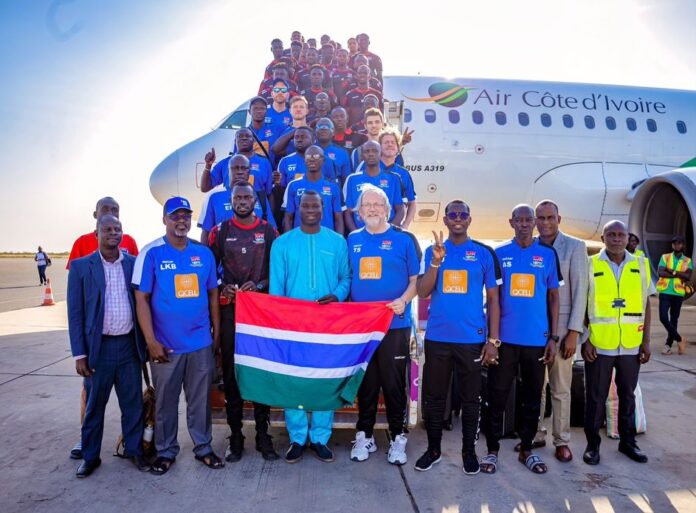By: Seringe ST Touray
When Tom Saintfiet took over as the head coach of The Gambia’s national football team (Scorpions) in 2018, very few people could have predicted the transformation he would lead. Under his guidance, The Gambia achieved milestones that had long seemed out of reach. For the first time in the country’s history, the national team qualified for the Africa Cup of Nations (AFCON) in 2021, an achievement that garnered widespread attention across the continent. Saintfiet’s leadership did not stop there; he guided the team to the quarter-finals of AFCON 2021 and secured another AFCON qualification in 2023.
Saintfiet’s tenure was marked by success after success. When he led Gambia to the 2021 tournament, they were the lowest-ranked team in the competition, yet they still managed to advance through the group stages. A 1-0 win over Mauritania, a draw with Mali, and a 1-0 victory over Tunisia secured them a spot in the Round of 16, where they triumphed over Guinea. Although Gambia lost to Cameroon in the quarter-finals, their remarkable journey captured the hearts of many.
However, Saintfiet’s time with the Gambian national team ended abruptly in January 2024 after Gambia’s early exit from AFCON 2023. The disappointment of the group stage elimination led to a quick turnaround in public sentiment – somewhat. Many Scorpions supporters who had previously praised his successes now started to doubt his methods; and, when he later struggled to make an impact with the Philippines national team, failing to win a single game and securing no qualifications, the sense of closure surrounding his departure from Gambia grew stronger.
Yet, in a surprising twist, Saintfiet’s career took another turn. On the very same day he resigned as head coach of the Philippines, he was named head coach of the Mali national team. And just a few months later (August 2024) he led Mali to an incredible AFCON 2025 qualification, culminating in a dominant 6-0 victory over Eswatini in the final qualifying match. The result was a perfect record in the qualifiers: four wins, two draws, 10 goals scored, and only one conceded.
In a post on social media following the win, Saintfiet shared his pride: “Proud of my Team! 6-0 win in our last qualification match, very dominant play with 67% ball possession and 25 shots on goal! Now being group winner without losing a match and with 4 wins and 2 draws, 10 goals scored and 1 conceded, 14 points!”
This statement highlights the dominance of his current Mali team as it contrasts sharply with the challenges faced during his final months with The Gambia and the Philippines. Saintfiet’s ability to bounce back and qualify Mali for AFCON, while Gambia did not, raises an important question: Does The Gambia owe Tom Saintfiet an apology?
While it’s understandable that the disappointment of a group stage exit at AFCON 2023 led to a reevaluation of his position, the question remains whether the Gambia truly gave Saintfiet the recognition he deserved for his role in revitalizing the national team. Under his guidance, the Gambia national team became a competitive force, earning respect and recognition on the continental stage.
Saintfiet helped put The Gambia on the map of African football; and, although his tenure ended on a low note, his legacy is one of success and progress. The Gambian football community was quick to turn on him when things didn’t go according to plan, but the recent turn of events with Mali’s qualification might suggest that Saintfiet’s skills and leadership were perhaps not fully appreciated during his time in Gambia.
As Mali now prepares for the upcoming AFCON, The Gambia will have to reflect on what was lost when Saintfiet moved on. Perhaps, in time, The Gambia will realize that, in the end, Tom Saintfiet gave the country more than just football achievements; more than that, he gave it relevance and recognition in the world of African football. Maybe, just maybe, an apology is in order.




